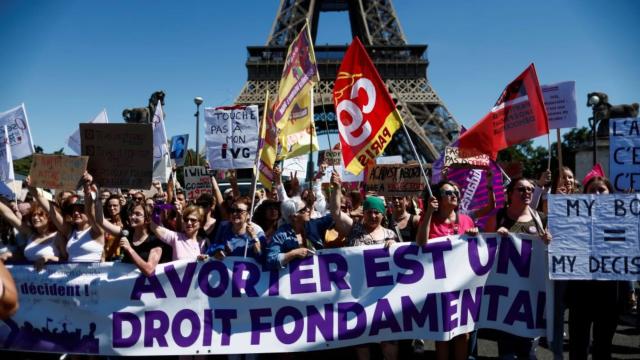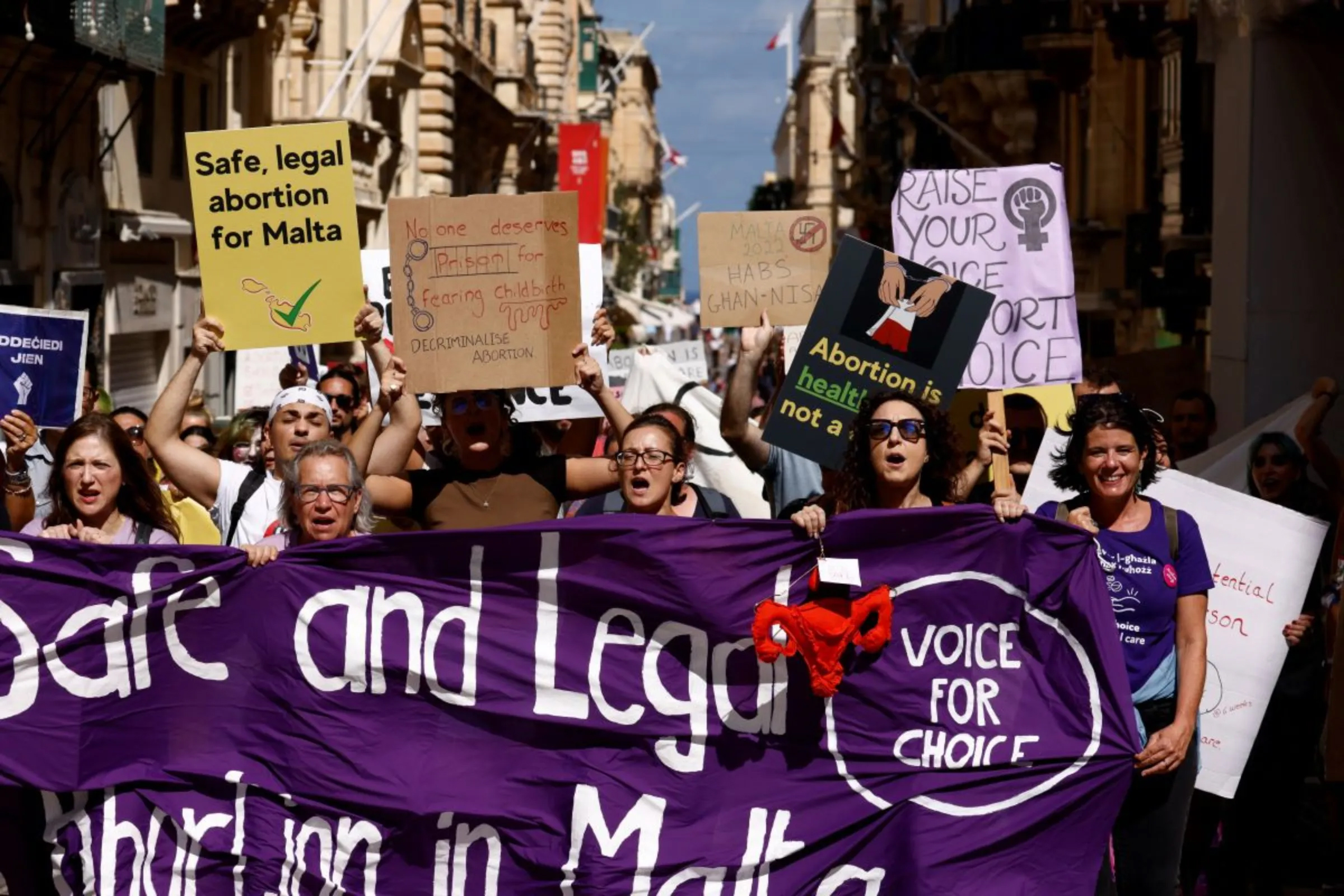
The right to abortion is a key issue for the 2024 U.S. presidential election. Donald Trump aims to continue what he began and make abortions illegal across the country. But this attack on women's rights extends far beyond the U.S., rallying movements elsewhere to make legal abortions impossible.
Across Europe, women in many nations face new obstacles—legal and otherwise—to control what happens to their bodies. Moving the opposite direction, the U.S. crackdown has inspired other European nations to broaden women's rights to bodily autonomy.
Who is attacking abortion rights?
Two years before the U.S. Supreme Court's 2022 decision to roll back the nationwide right to abortion known as Roe v. Wade, Poland effectively outlawed abortion. Both of these legal moves buck the trend of rights increasing over the 20th century. Yet these two cases are not isolated, nor unrelated.
U.S. Christian Right organizations have spent millions of dollars backing anti-abortion campaigns in recent decades, including those organized by the Cato Institute and Heritage Foundation. Some organizations have ties to Trump and his closest allies.
These campaigns have their roots in the late 1970s, where the U.S. Christian Right surged in their organizing to push oppression against women, racialized communities, LGBTQ and other groups, both at home and abroad.
Historically, eminent feminist and social scientist Silvia Federici has traced back the anti-women's struggle to the demonization of women and the Witch Hunts, as early as 700 years ago. These attacks created the structural oppression of women that are still with us today, something the hard right aims to reconstruct.
Today's anti-abortionist movements in different countries feed one another. They distribute money, legal tactics and political energy. This means an attack on abortion rights in one place opens the door to attacks elsewhere.
Europeans' rights and access to abortion is under threat
Hungary has been led by an authoritarian ruler, Victor Orbán, since 2010. Yet the country began implementing obstacles for women seeking abortion only after more than a decade of his rule, in 2022.
These moves include forcing women to listen to the supposed “fetal heartbeat” before going ahead with the procedure, even though at this early stage of pregnancy it is really the noise of the ultrasound machine they are hearing.
Hungary is not alone. The European Abortion Policies Atlas in 2021 estimated that women in one-third of European countries face severe barriers accessing abortion.
The barriers women face are legal, financial and in many cases result because no doctors are willing to perform the procedure.
Countries such as Liechtenstein, Monaco, Andorra and the Faroe Islands all have strict rules against abortion, and other countries such as Germany force women to go through counseling in order to gain services.
This can pressure women not to make their own decision. The Slovakian parliament has voted over 20 times recently to ban abortion, with the measure narrowly avoided by as little as one vote.
Looking ahead, there are many far-right or hard-right parties in Europe pushing in the anti-abortion direction, with electoral support indicating a strong chance that some will gain power and form coalition governments in the next few years, including Spain's Vox Party.
In other countries, where women legally can access abortions, they must pay large sums privately to access the services. For instance, in Romania and Austria, the procedure can cost upwards of €900 (US$980).
Furthermore, in 22 EU states doctors are allowed to abstain from offering abortions. This problem is especially acute in countries such as Italy, where over two-thirds of gynecologists are enabled to abstain based on their personal moral or religious beliefs.
Broadly, the lack of access to abortions and the new emboldened far-right politics of the continent paint a grim picture for Europe. Anti-choice campaigns across borders are building momentum, sharing expertise and tactics—such as using legal test cases to push back against hard-won abortion rights.
Yet moving in the opposite direction, there is a fightback for women's autonomy.
Resistance: places where abortion rights are increasing
Last month, on March 4, the French Parliament voted to enshrine the constitutional right to an abortion, making it the first country to do so. This process was driven in direct reaction to the U.S. overturning of Roe v. Wade. The decision codifies the right to an abortion, which has been legal in France since 1975.
The Republic of Ireland is another country to secure abortion rights, after a referendum in 2018 made legal abortions possible—even if the country still has a long way to go to make them universally accessible.
Abortion access has been strengthened elsewhere in Europe, too. Germany in 2023 overturned a law dating back to the Nazi era that stopped doctors from publicizing potential abortion options.
In the UK, since the Covid pandemic, abortion pills are now available in the post, while in Spain, since 2023, youths as young as 16 no longer need parental consent to have an abortion, and access in hospitals has been increased.
The European Union has also been backing a women's right to choose. For instance, the European Court in 2023 censured Poland for withdrawing a woman's right to choose, and the EU Parliament has initiated moves towards making this right continent-wide.
Yet it is worth noting that national parliaments can push back, or even veto such moves.
Broadly, what happens in the U.S. elections will make a difference to all these struggles. It will embolden many anti-abortion forces if the world's most powerful nation continues to limit these rights.
Likewise, the attack on abortion rights in the U.S. is sharpening the resolve of those fighting for women's rights. Whatever happens in November, the issue will continue as a crucial battle of our times.
















